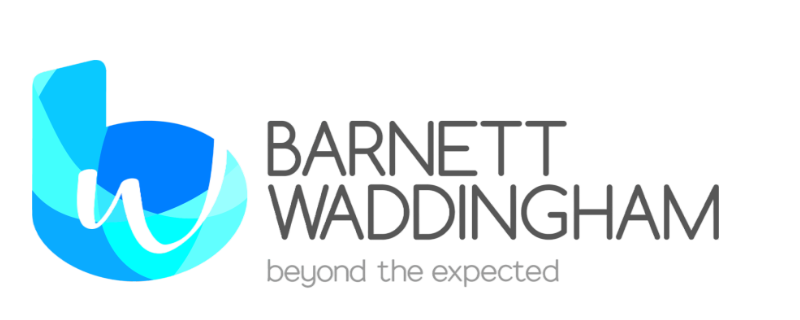Book now for GIRO 2024: 18 to 20 November in Birmingham, UK
Join the top industry experts and thought leaders across the leading edge of the actuarial profession. Network with your peers as you discuss some of the key challenges and opportunities faced by general insurance actuaries today.
The conference is the ideal platform to expand your professional network through multiple planned networking sessions over the three days. Plus it’s the perfect opportunity to meet your professional development requirements for the year.
Helen Sharman was the first Briton in space, visiting the Mir space station aboard a Russian Soyuz rocket in 1991.
Helen’s chemistry and science background lead her to a succession of engineering and research jobs including with MOV (formerly known as Marconi Osram Valve). She left MOV and began work as a research-technologist for Mars Confectionary (because she likes chocolate and wanted to work on how it tastes).
The Soviet Union and a group of UK companies agreed on Project Juno, under which the UK would fly a cosmonaut on board a joint soviet-UK spaceflight, on purely commercial terms. A cosmonaut selection programme was undertaken with over 13,000 applicants responding to media advertising. Helen, the woman the tabloids dubbed ‘the girl from Mars’, was selected on a variety of criteria to undertake the gruelling 18 month training at Russia’s Star City.
Helen and two Russian cosmonauts blasted off for the Mir space station and after eight days of medical and agricultural experiments, safely returned. Helen is one of only around 500 people to have journeyed into space, she was also one of the youngest and one of only a few women to have experienced space travel.
After her time in space Helen was a writer, broadcaster and science communicator. She then joined the National Physical Laboratory before becoming Operations Manager for the Department of Chemistry at Imperial College London. She continues her work to further public knowledge and engagement with chemistry and space.
Hamish McRae is a hugely respected economic journalist and author he was a long-serving Associate Editor and Chief Economic Commentator of The Independent before the title went digital-only. He continues to write columns online, and also writes regularly for the London Evening Standard. He is also author of the acclaimed book, The World in 2020: Power, Culture & Prosperity - an international bestseller translated into a dozen languages. His follow up, The World In 2050: How to Think about the Future, looks at how forces of change, including demography, the environment, finance and technology, could affect our future.
Unlike many forecasters, Hamish’s presentations bring together all the forces for change in the short to medium term: demographics, natural resources, government and policy, globalisation, technology, and society. Once these changes are properly understood and placed in context, they can be used to inform strategy. There’s no given formula or single conclusion, but a compelling case for every business to be nimble and innovative in their own way.
Retaining a global perspective, Hamish has also published the influential What Works: Success in Stressful Times. In it he documents what we can draw from achievements like mobile telephony in Africa, sports education in Australia and New York philanthropy. He looks at what were the common threads and unique circumstances that has seen huge growth, phenomenal success or dynamic innovation, and consider how they be replicated by organisations and states.
Hamish started his career as Deputy Editor of The Banker and Editor of Euromoney, before becoming Financial Editor of The Guardian. He has been named Business and Finance Journalist of the Year by the British Press Awards.
David Muir is a senior economist at Moody’s Analytics in London. David previously worked as an economist at HSBC, Lloyds Banking Group, and the Confederation of British Industry. He holds a bachelor’s degree in law and German from Edinburgh University and an MSc in economics from Warwick University.
| Activity | Time | Details |
|---|---|---|
| Registration, lunch, tea and coffee | 12:00 - 13:15 | Registration, lunch, tea and coffee |
| Transfer time | 13:15 - 13:25 | Transfer time |
| Welcome to GIRO Conference 2024 | 13:25 - 13:35 | Welcome to GIRO Conference 2024 |
| Plenary 1: Hamish McRae | 13:35 - 14:35 | Plenary 1: What will the future hold? Risks and rewards on the path to 2050 Read more |
Speaker: Hamish McRae | ||
| Transfer time | 14:35 - 14:45 | Transfer time |
| Workshop A1 | 14:45 - 15:35 | PRA focus Read more |
This session will be led by Dan Curtis, the head of GI Risk Specialists in the PRA, who will be joined by actuarial and risk experts. We will discuss some of our recent thematic work, key messages for general insurance firms, and our planned priorities for 2025. Topics will include areas such as catastrophe and cyber risk, model drift analysis and our expectations of firms in relation to climate change. Target audience and assumed knowledge level: A high-level talk which should be of interest to all actuaries. Speakers and company: Dan Curtis, Lisa Coomey, April Wang, and Alex Curtis, PRA | ||
| Workshop A2 – sponsored by hyperexponential | 14:45 - 15:35 | The current state of pricing Read more |
Sponsored by hyperexponential The 2024 State of Pricing report, based on a comprehensive survey of more than 300 actuaries and underwriters, offers an in-depth analysis of the critical challenges and opportunities facing specialty and commercial insurers. Following the inaugural report in 2023, which revealed that 89% of UK respondents believed their pricing technology needed improvement, and fewer than one in five described their pricing processes as data-driven, the 2024 findings highlight the key issues impeding progress in the industry. The report outlines the essential requirements for achieving meaningful pricing transformation. Key topics covered include:
Target audience and assumed knowledge level: A high-level talk which should be of interest to all actuaries. Speaker and company: Tom Chamberlain and Jamie Wilson, hyperexponential | ||
| Workshop A3 – sponsored by Earnix | 14:45 - 15:35 | Increasing machine learning benefits while meeting regulatory and business requirements in personal line pricing Read more |
Sponsored by Earnix This session is designed to be accessible to actuaries at all levels of experience with an interest in machine learning (ML), including senior actuaries and team leaders who want to increase their knowledge on implementing ML in the pricing process. ML techniques and knowledge are becoming more popular in the pricing process for personal lines. Fairness and transparency requirements are also increasing. How can we benefit from the advantages of ML while meeting regulatory and business requirements? This session will include discussions on the following:
The presentation will focus on best practices and practical applications, with real-world examples of how to implement improvements in the pricing process. Experts in the field of AI and actuarial science will lead the session, sharing their insights and experiences with the audience. Target audience and assumed knowledge level: Actuaries at all levels of experience with an interest in ML. Speaker and company: Oren Kohavi, Earnix | ||
| Workshop A4 | 14:45 - 15:35 | Systemic risk: a year in the life of Lloyd's risk management Read more |
If the last few years have taught us anything, it's that actuaries need to give sufficient focus to systemic risks – those events where common factors or dependencies between risk areas can lead to an accumulation of impacts across assets, liabilities and operations. This talk will provide an overview of the role that the Lloyd’s risk management team play to ensure risks associated with systemic events are identified, assessed, managed and monitored. Ultimately, they drive the corporation’s approach to oversight of the Lloyd’s market and protect the financial strength of Lloyd’s and the Lloyd’s Central Fund. This session will bring together the team's activity across:
Target audience and assumed knowledge level: Actuaries across all levels and disciplines within general insurance, particularly those working within risk management functions. Speaker and company: James Tomlin and Varsini Vijayakumaraguru, Lloyd's | ||
| Workshop A5 | 14:45 - 15:35 | Cyber: evolving threat landscape and the reserving challenges Read more |
Insurance has historically responded to the changing needs of society. With the growing interconnected digital world, cyber threats are fast becoming a significant concern for all industries: healthcare, IT and telecommunications, military, legal, manufacturing, financial services and others. As cyber risks are an evolving territory, our session intends to cover cybercrime, cyber insurance and reserving challenges, with a key focus on:
In summary, to navigate the complexities of cyber risk, insurers need to be adequately prepared. Reserving actuaries need innovative approaches to estimating the potential liabilities, as traditional static models may not capture the entire risk spectrum. This will be a technical session and will aim to answer the pressing questions that actuaries at all levels have around this emerging class of business. Target audience and assumed knowledge level: Basic reserving knowledge would be assumed but is not essential. Speaker and company: Chehak Jain and Paul Goodenough, AXA XL | ||
| Workshop A6 | 14:45 - 15:35 | Can actuaries change the world? How can we use our skills to drive the change required to put a stop to modern slavery? Read more |
In recent years, a lot of focus has been placed on climate change, biodiversity and the relationship between the two. However, while modern slavery does not contribute directly to increased risks in climate change and/or biodiversity loss, both those things can act to increase the risk of modern slavery. Despite this, modern slavery has not been at the forefront of ESG policies across the world. In our talk we will be looking at:
Target audience and assumed knowledge level: This session will include high level concepts around modern slavery and a technical element around quantifying a company’s footprint despite lack of data. Speaker and company: Raluca Stefan, Hamda Masoud and Kamran Garcha, Grant Thornton | ||
| Workshop A7 | 14:45 - 15:35 | Investments – generating crucial returns while controlling for risk in volatile times Read more |
Investment returns are critical to insurers seeking to generate a competitive return on equity. The economic environment has shifted decisively in recent years: high and volatile interest rates are the norm, inflation is impacting both sides of the balance sheet and geopolitical uncertainty has increased. It’s estimated that 100bps higher investment yield is worth as much as a 250bps fall in combined ratio, underscoring the importance for shareholders. The impact of this new paradigm is also beginning to be felt in credit and equity markets. Climate change makes it ever more important to consider asset and liability risks in tandem, to avoid doubling up on risk. At the same time, investment must play its part in supporting solvency and credit rating targets, and liquidity needs to be maintained across one or multiple entities. In this session we will discuss how insurers can meet these challenges, and how investment teams can work effectively with risk, capital and underwriting colleagues to deliver strong returns and harvest the illiquidity premium. Target audience and assumed knowledge level: Actuaries at all levels with an interest in investments including capital, risk and underwriting actuaries. Speaker and company: Kedi Huang, Aspen, and William Gibbons, Mercer | ||
| Transfer time | 15:35 - 15:45 | Transfer time |
| Workshop B1 | 15:45 - 16:35 | Lloyd's update Read more |
The Lloyd’s update will give a summary of the initiatives that Lloyd’s actuaries have been working on to “make the market thrive” – with a particular focus on making it easier for the market to do business at Lloyd’s. It will focus on capital setting for new syndicates and EP curves, but will give a sneak preview of findings from the ongoing review into casualty classes. Target audience and assumed knowledge level: No specialist knowledge required Speaker and company: Mirjam Spies, Uma Divekar, Viral Patel, and Alex George, Lloyd’s | ||
| Workshop B2 | 15:45 - 16:35 | Hush hush: Keeping neural network claims modelling private when distributed and shared between different insurers using federated learning Read more |
Federated learning is a new method of training machine learning models pioneered by Google in 2016 for use on smartphones. This concept enables the direct training of machine learning models on users’ devices, eliminating the need to share or transfer potentially sensitive data to a centralized server. Unlike traditional machine learning methodologies, federated learning adopts a model where the algorithm is brought to the data, rather than transferring the data to the algorithm. In this presentation, the Federated Learning Working Party (part of the IFoA Data Science Research Section) will illustrate how insurers can leverage this technique. We will show how companies can collaboratively develop a neural network model to predict claims frequency. This collaboration allows for the combination and utilization of their customer data without sharing or compromising any sensitive information. This maintains data privacy while building an AI model. We achieve this using the Flower and PyTorch packages in Python. We will cover the basics of how federated learning uses a unique form of encryption that enables modelling without the need to see sensitive data, using simple, easy to follow examples. Target audience and assumed knowledge level: No prior knowledge of federated learning necessary. Some familiarity with claims frequency and neural network modelling is assumed. Speaker and company: Dylan Liew, BUPA, Malgorzata Smietanka, UCL, Michelle Chen, AIG | ||
| Workshop B3 | 15:45 - 16:35 | Fair's fair: the future of pricing – roundtable session Read more |
This roundtable session is a follow-up to the GI Pricing Research Group's webinar ‘Fair's fair: the future of pricing’, presented at the IFoA General Insurance Spring Conference. The session will allow interested actuaries to discuss the issues raised in that webinar around fairness and equity in pricing and product design, and come up with some action plans. It includes the following topics:
This workshop is also intended as a launchpad event for a Fair Pricing Action Taskforce, although attending the roundtable is not a commitment to join. Target audience and assumed knowledge level: Advance knowledge required. Speaker and company: Edward Plowman, Guy Carpenter, Andy Goldby, The Floow, Laura Evans, Flood Re, and Zvi Ebert, KPMG | ||
| Workshop B4 | 15:45 - 16:35 | Findings from our 2024 research into global market-wide reserving and transformation Read more |
Our research, which is currently underway, is based on input from heads of reserving and chief actuaries (or similar) at insurers and reinsurers across the UK, Americas, EMEA and APAC. The focus of our work is to better understand the current reserving challenges faced by businesses, as well as their visions for the future. We will present the findings of our analysis, which will include an overview of the current state of play across the market; expectations for where firms are focusing next and our blueprint for a market-leading reserving process for 2024 and beyond. Target audience and assumed knowledge level: No specialist knowledge required. Speaker and company: Cat Drummond and Melissa Tam, LCP | ||
| Workshop B5 | 15:45 - 16:35 | Fresh perspectives from the Ogden Discount Rate Working Party Read more |
The Ogden discount rate stands as a pivotal factor for insurers and reinsurers, shaping the landscape of pricing and reserves for UK bodily injury claims. With recent announcements for Scotland and Northern Ireland driving positive changes for insurers, attention has shifted to the ongoing England and Wales review. This session will enable actuaries to understand what the key decision factors will be and what is really important to focus on. It will help actuaries navigate what the rate may end up as in January 2025. In particular, this session will consider:
Our aim with this talk is to enhance attendees' understanding of what actions should be taken to prepare for a new Ogden rate. Target audience and assumed knowledge level: No specialist knowledge required. Speaker and company: Amit Parmar, Guy Carpenter, Andrew Corner, Mohammad Khan, and Emma Leach, PwC, and Ricky Childs, Apollo | ||
| Workshop B6 | 15:45 - 16:35 | Risk aggregation: comparing the covariance method with simulation methods Read more |
Typically, regulatory models aggregate risks using correlation matrices and the covariance method. Internal capital models used by insurance companies, however, typically aggregate risks using simulation methods and copulas. For risk measures like VaR and TVaR, with non-normal marginal distributions or non-Gaussian copulas, these methods give different results. In this session we will present the results of the work of the AFIR/ASTIN working party on risk aggregation with correlation matrices, which investigated the differences for a range of copulas and marginal distributions. We used simulation techniques rather than a theoretical approach. Target audience and assumed knowledge level: Actuaries at all levels with an interest in comparing techniques for aggregating risk and understanding the differences in the output of regulatory models and internal capital models. Speaker and company: Robert Scarth, AXIS Capital | ||
| Workshop B7 | 15:45 - 16:35 | Influencing the future: empowering actuaries to lead with confidence Read more |
Actuaries can gain strategic insights by studying the success patterns of leading social media influencers and case studies of highly successful industry influencers. The objective of this session is to explore innovative pathways through which actuaries can extend their influence beyond conventional roles by: Leveraging social media dynamics:
Case study exploration:
Inclusive gender dynamics and career longevity:
Target audience and assumed knowledge level: No specialist knowledge required. Speaker and company: Wendy Kriz Evans, LCP and Karen Dayal, Aviva | ||
| Transfer time | 16:35 - 16:45 | Transfer time |
| IFoA townhall | 16:45 - 17:35 | IFoA townhall |
| Delegate free time | 17:35 - 18:00 | Delegate free time |
| Drinks reception and buffet dinner | 18:00 - 21:00 | Drinks reception and buffet dinner |
| Registration, lunch, tea and coffee | 12:00 - 13:15 | Registration, lunch, tea and coffee |
| Activity | Time | Details |
|---|---|---|
| Registration | 08:15 - 09:00 | Registration |
| Plenary 2: Professionalism | 09:00 - 10:00 | Plenary 2: Professionalism Read more |
What do you do when everyone has a different version of events? When something goes wrong, but they’re all saying it’s someone else’s fault? And how do you resolve this when you have a baying audience at 9am, all eager to give their opinion? This interactive session will explore how you might approach this messy professional situation, fuelled by the audience’s input, in a way suited to our timeslot. Speaker: Richard Chalk, IFoA Professional Skills Working Group | ||
| Research update | 10:00 - 10:30 | Research update Read more |
Speaker: Jake Iveson, Chair, General Insurance Research and Thought Leadership Sub-committee | ||
| Hot topic 60-second pitches | 10:30 - 10:40 | Hot topic 60-second pitches |
| Morning refreshments and exhibition | 10:40 - 11:10 | Morning refreshments and exhibition |
| Transfer time | 11:10 - 11:20 | Transfer time |
| Workshop C1 | 11:20 - 12:10 | Solvency UK: update Read more |
The Solvency II reforms for internal models will go live at the end of 2024 and are relevant for any firm with an internal model or who plans on applying for one in the future. In this session, we will cover what this means in practice for internal model and partial internal model firms and what changes firms can expect compared to the current Solvency II regime. There will be a focus on major model change applications, new applications and ongoing monitoring of internal models. Target audience and assumed knowledge level: All actuaries working in insurance, particularly in risk and capital, whether they’re at firms, consultancies or brokers. Speaker and company: Amanda Istari, Ryan Li, and Elena Papastylianou, PRA | ||
| Workshop C2 | 11:20 - 12:10 | Pricing: the state of the market Read more |
Presented by the IFoA GI Pricing Research Group (PRG), we will cover a macro-level view of the current issues influencing pricing in three main sections: Part 1: Profitability, drivers and trends To open the session, we will provide an overview of levels of profitability from the recent past, the present, and projected into the future, with discussion on the main drivers and trends. This will cover both:
Part 2: The issues register In this part, we will cover highlights from the issues register maintained by the PRG, which captures the main influences currently affecting pricing, pricing functions and the role of actuaries in pricing. This will include:
We are also considering a survey of pricing actuaries and/or conducting a chief pricing actuary roundtable; findings from these may also be included. Part 3: The pricing function in 2024 Finally, we look at how pricing and portfolio management functions should be acting to address the challenges of the current environment, and evolving to address those of the future. Target audience and assumed knowledge level: No specialist knowledge required. Speaker and company: Edward Plowman, Guy Carpenter, Mohammed Khan, PwC, James Anderson, EY, James Rakow, Deloitte, and Zvi Ebert, KPMG | ||
| Workshop C3 | 11:20 - 12:10 | Practical guide for general insurance actuaries on managing claims inflation uncertainty Read more |
UK, US and EU CPI inflation may have trended downward from their recent peaks, but the economic, political and climatic environments remain as uncertain as ever. Our presentation will provide an update from the Claims Inflation Working Party on:
Our update will also include results from our third annual inflation survey, comparing actual vs expected CPI inflation for 2024 and highlighting key changes in views on class-specific inflation and inflation uncertainty. Target audience and assumed knowledge level: Actuaries at all levels regardless of their experience, background or area of focus. Speaker and company: Richard Stock, Tindall Riley and Cian Creedon, Aon and Shane Lenney, SCOR | ||
| Workshop C4 | 11:20 - 12:10 | Dependency modelling: combining statistical learning with expert judgement Read more |
Dependency parameters are often among the most material assumptions in a capital model, but also tend to be among the most uncertain. This is due to the relative lack of historical data available to parameterise them, which forces a reliance on expert judgment. The goal of this talk is to outline an approach to help refine and improve the parameterisation process, by combining quantitative analysis of historical data with the more traditional qualitative assessment of key drivers. Using a real-world dataset from a multi-line insurer, we will cover:
Target audience and assumed knowledge level: There will be some technical content, but the aim is to present the issues in an accessible way that does not require capital modelling expertise. Speaker and company: Neil Gedalla and Nadeen Griffiths, LCP | ||
| Workshop C5 | 11:20 - 12:10 | UK government’s contingent liabilities and insurance schemes Read more |
The UK government’s contingent liabilities are complex and varied and have an uncertain impact on government finances. They range from nuclear decommissioning to international guarantees supporting developing countries, from clinical negligence claims in the NHS to procurement indemnities for large infrastructure projects. They can be an important policy tool in supporting economic growth and meeting the government’s objectives. However, it is imperative that when government takes on risk, the risk is well understood and managed. In 2021 a Contingent Liability Central Capability (CLCC) team was established within UK Government Investments (UKGI) in partnership with the Government Actuary’s Department (GAD). The CLCC supports government departments in the evaluation, pricing and management of guarantees and insurance. It also monitors and reports on the government’s overall portfolio of risk from contingent liabilities, and published its first full review in November 2023. Target audience and assumed knowledge level: No specialist knowledge required. Speaker and company: Owen Dimbylow and Jonathan Day, UKGI, Gina Mosquera, Government Actuary's Department | ||
| Workshop C6 | 11:20 - 12:10 | Building systems that fast Read more |
The golden age of actuarial system engineering is only set to continue. Increasingly, in-house and third-party solutions put actuaries at the heart of crafting core business tooling. Last year's talk, ‘Building systems that last’, focused on principles and practices aimed at ensuring the systems of today are maintainable and understandable tomorrow. This year's ‘Building systems that fast’ focuses instead on the principles, practices and intuition behind building highly performant systems that don't leave their users wanting. The target audiences for this talk are creators, designers and users of actuarial tools and systems along with anyone with an interest in actuarial technology. It will be highly accessible, providing necessary and sufficient background for all concepts discussed. If you've ever used a tool at work and wondered why it's taking so long to complete, this is the talk for you. Attendees will come away with:
With more and more data being stored and processed by insurance companies than ever before, now is the time to upskill and turbocharge the performance of your applications. Target audience and assumed knowledge level: No specialist knowledge required. Speaker and company: Thomas Hamilton, L DATA. T DATA | ||
| Workshop C7 | 11:20 - 12:10 | Boosting the sustainability agenda with data science Read more |
Taking into account how the two diverse topics of sustainability and modern data analytics are rapidly developing within the general insurance segment of the insurance market, we would like to shed light on what can we achieve at the intersection of the present and the future perspective. Our report will be structured as 4 subjects:
Target audience and assumed knowledge level: Prior knowledge is required. Speaker and company: Alexey Mashechkin, Allianz | ||
| Lunch | 12:10 - 13:10 | Lunch |
| Women actuaries networking event | 12:10 - 13:10 | Women actuaries networking event Read more |
After marking 100 years since the first female actuary at Staple Inn, the IFoA continues its passion to celebrate women actuaries of the past, present and future. Please join us at GIRO Conference 2024 for our women actuaries networking session. If you are unable to join us, you can still be part of the conversation on IFoA communities. Join the women actuaries community on IFoA communities | ||
| Transfer time | 13:10 - 13:20 | Transfer time |
| Hot topics: session 1 | 13:20 - 14:00 | Session repeated at 14:10, giving delegates the chance to attend more than one hot topic. |
| Hot topic 1 | 13:20 - 14:00 | Reserving for climate change – the emerging risk frontier Read more |
In 2022 the IFoA General Insurance Climate Change Reserving Working Party embarked on a mission to reframe the professional discussion surrounding climate change. Our pitch was that practical activity was needed, not moralising or hand-wringing. In 2023 we set out some foundations by outlining the key issues around climate change that general insurance reserving actuaries needed to be aware of. We also shared some practical steps that could be taken. This year, we continue to develop this work, addressing three sets of questions:
Target audience and assumed knowledge level: Prior knowledge required. Speaker and company: Alex Marcuson, Marcuson Consulting Ltd | ||
| Hot topic 2 | 13:20 - 14:00 | Climate stress and scenario testing Read more |
The IFoA’s Climate Stress and Scenario Working Party has been developing a framework to help companies build organisation-specific, decision-useful climate narratives and stress and scenario tests. We will be publishing this paper in Q3 2024. The aim of this presentation is to present our framework for climate stress and scenario testing. It will be of interest to organisations starting out on their climate scenario journeys, as well as those looking to advance their current approaches. It will also be of interest to actuaries working in the climate space and responsible for developing climate and other scenarios. Target audience and assumed knowledge level: No specialist knowledge required. Speaker and company: Deepanjali Talwar, Nordea Bank and Ambreen Shareef, Admiral Group | ||
| Hot topic 3 | 13:20 - 14:00 | Climate Scorpion – the sting is in the tail Read more |
Earth’s climate may be more sensitive than we thought. Climate change has arrived, with severe impacts emerging at lower temperatures than expected. The distribution has shifted – historic tail risks are now expected. Climate Scorpion is the latest IFoA research collaboration with climate scientists. It explores the potential for extreme climate risks, their knock-on social effects and the actions we can take to manage them. Join us to share the findings and implications of the Climate Scorpion paper. The session will cover:
We'll explain why it’s so risky to go past the 1.5C ‘net zero’ target, why it’s likely we will and how we can apply financial services risk management techniques to the climate change challenge. Target audience and assumed knowledge level: No specialist knowledge required. Speaker and company: Georgina Bedenham, Government Actuary's Department | ||
| Hot topic 4 | 13:20 - 14:00 | Role of climate scenario analysis in enhancing risk management and strategic planning Read more |
The Climate Scenario Working Party’s engaging and interactive workshop is tailored to the needs of the general insurance market. Its aim is to collaboratively develop a new climate scenario that will serve as a valuable tool for informing business strategies within the insurance industry. Throughout the workshop, we will provide a comprehensive overview of the practical applications of climate scenarios and highlight the benefits of scenario analysis. Workshop agenda:
The workshop promises to be an insightful and interactive session, offering participants the opportunity to steer the development of a scenario and explore the potential impacts of climate risk on the insurance industry. We look forward to engaging with our audience in this collaborative exercise, ultimately contributing to enhanced strategic planning and risk management within the general insurance market. Target audience and assumed knowledge level: No specialist knowledge required. Speaker and company: Juweena Appanah, Crowe LLP | ||
| Hot topic 5 | 13:20 - 14:00 | Emerging climate disclosures and their impact on general insurance Read more |
The IFoA's Climate Change Reporting and Disclosure Working Party has recently published a series of articles in The Actuary and the British Actuarial Journal. These articles set out the actuarial implications of climate change disclosure requirements. The working party is made up of a range of backgrounds and industries, including consulting, pensions, life and general insurance. Our conclusions apply generally to actuaries with an interest in sustainability and specifically to general insurance actuaries and insurers. In this session we propose building on our reports to identify specific potential impacts on general insurance firms and actuaries, by considering:
Our presenters cover a range of industry initiatives and can offer deep insights into industry-specific reporting requirements. Target audience and assumed knowledge level: No specialist knowledge required. Speaker and company: Lloyd Richards, Crowe | ||
| Hot topic 6 | 13:20 - 14:00 | Suing for survival: the emerging wave of climate change litigation Read more |
How will the general insurance industry adapt to the rising tide of climate change litigation? What strategies can be implemented to mitigate these risks? And how can insurers leverage this shift to foster a more sustainable future? These are critical questions that industry leaders must address to shape a resilient future. The surge in climate-related lawsuits demands robust risk assessment and innovative policy frameworks, compelling the industry to play a proactive role in promoting sustainability. Leveraging insights from lawyers and climate-scenario experts, our session will explore the profound impact of climate litigation on the general insurance industry. We will discuss the key challenges insurers face from the increasing risk of climate-related litigation and highlight what front-runners are doing to prepare for this emerging issue. In particular, we will dive into real-life examples of what an insurer with material D&O exposure can do to assess it. Target audience and assumed knowledge level: No specialist knowledge required. Speaker and company: Sarah Clare and Krish Kistnassamy, Hymans Robertson | ||
| Hot topic 7 | 13:20 - 14:00 | Climate change and flood risk: transforming the actuarial profession Read more |
As climate change accelerates, the actuarial profession faces unprecedented challenges in effectively assessing flood-related risks. This session will explore how climate change is reshaping the role of actuaries. With a shift from reliance on historical data to the integration of advanced technologies and climate models, actuaries can better predict future climate risk scenarios and manage uncertainty. Drawing on extensive research and cutting-edge solutions developed by Fathom, attendees will benefit from the latest findings and practical applications of advanced flood risk assessment tools. They’ll leave with actionable knowledge that will enhance their professional practice. Target audience and assumed knowledge level: Prior knowledge required. Speaker and company: Paul Bates, University of Bristol | ||
| Transfer time | 14:00 - 14:10 | Transfer time |
| Hot topics: session 2 | 14:10 - 14:50 | Repeat of session 1, giving delegates the chance to attend more than one hot topic. |
| Hot topic 1 | 14:10 - 14:50 | Reserving for climate change – the emerging risk frontier Read more |
In 2022 the IFoA General Insurance Climate Change Reserving Working Party embarked on a mission to reframe the professional discussion surrounding climate change. Our pitch was that practical activity was needed, not moralising or hand-wringing. In 2023 we set out some foundations by outlining the key issues around climate change that general insurance reserving actuaries needed to be aware of. We also shared some practical steps that could be taken. This year, we continue to develop this work, addressing three sets of questions:
Target audience and assumed knowledge level: Prior knowledge required. Speaker and company: Alex Marcuson, Marcuson Consulting Ltd | ||
| Hot topic 2 | 14:10 - 14:50 | Climate stress and scenario testing Read more |
The IFoA’s Climate Stress and Scenario Working Party has been developing a framework to help companies build organisation-specific, decision-useful climate narratives and stress and scenario tests. We will be publishing this paper in Q3 2024. The aim of this presentation is to present our framework for climate stress and scenario testing. It will be of interest to organisations starting out on their climate scenario journeys, as well as those looking to advance their current approaches. It will also be of interest to actuaries working in the climate space and responsible for developing climate and other scenarios. Target audience and assumed knowledge level: No specialist knowledge required. Speaker and company: Deepanjali Talwar, Nordea Bank and Ambreen Shareef, Admiral Group | ||
| Hot topic 3 | 14:10 - 14:50 | Climate Scorpion – the sting is in the tail Read more |
Earth’s climate may be more sensitive than we thought. Climate change has arrived, with severe impacts emerging at lower temperatures than expected. The distribution has shifted – historic tail risks are now expected. Climate Scorpion is the latest IFoA research collaboration with climate scientists. It explores the potential for extreme climate risks, their knock-on social effects and the actions we can take to manage them. Join us to share the findings and implications of the Climate Scorpion paper. The session will cover:
We'll explain why it’s so risky to go past the 1.5C ‘net zero’ target, why it’s likely we will and how we can apply financial services risk management techniques to the climate change challenge. Target audience and assumed knowledge level: No specialist knowledge required. Speaker and company: Georgina Bedenham, Government Actuary's Department | ||
| Hot topic 4 | 14:10 - 14:50 | Role of climate scenario analysis in enhancing risk management and strategic planning Read more |
The Climate Scenario Working Party’s engaging and interactive workshop is tailored to the needs of the general insurance market. Its aim is to collaboratively develop a new climate scenario that will serve as a valuable tool for informing business strategies within the insurance industry. Throughout the workshop, we will provide a comprehensive overview of the practical applications of climate scenarios and highlight the benefits of scenario analysis. Workshop agenda:
The workshop promises to be an insightful and interactive session, offering participants the opportunity to steer the development of a scenario and explore the potential impacts of climate risk on the insurance industry. We look forward to engaging with our audience in this collaborative exercise, ultimately contributing to enhanced strategic planning and risk management within the general insurance market. Target audience and assumed knowledge level: No specialist knowledge required. Speaker and company: Juweena Appanah, Crowe LLP | ||
| Hot topic 5 | 14:10 - 14:50 | Emerging climate disclosures and their impact on general insurance Read more |
The IFoA's Climate Change Reporting and Disclosure Working Party has recently published a series of articles in The Actuary and the British Actuarial Journal. These articles set out the actuarial implications of climate change disclosure requirements. The working party is made up of a range of backgrounds and industries, including consulting, pensions, life and general insurance. Our conclusions apply generally to actuaries with an interest in sustainability and specifically to general insurance actuaries and insurers. In this session we propose building on our reports to identify specific potential impacts on general insurance firms and actuaries, by considering:
Our presenters cover a range of industry initiatives and can offer deep insights into industry-specific reporting requirements. Target audience and assumed knowledge level: No specialist knowledge required. Speaker and company: Lloyd Richards, Crowe | ||
| Hot topic 6 | 14:10 - 14:50 | Suing for survival: the emerging wave of climate change litigation Read more |
How will the general insurance industry adapt to the rising tide of climate change litigation? What strategies can be implemented to mitigate these risks? And how can insurers leverage this shift to foster a more sustainable future? These are critical questions that industry leaders must address to shape a resilient future. The surge in climate-related lawsuits demands robust risk assessment and innovative policy frameworks, compelling the industry to play a proactive role in promoting sustainability. Leveraging insights from lawyers and climate-scenario experts, our session will explore the profound impact of climate litigation on the general insurance industry. We will discuss the key challenges insurers face from the increasing risk of climate-related litigation and highlight what front-runners are doing to prepare for this emerging issue. In particular, we will dive into real-life examples of what an insurer with material D&O exposure can do to assess it. Target audience and assumed knowledge level: No specialist knowledge required. Speaker and company: Sarah Clare and Krish Kistnassamy, Hymans Robertson | ||
| Hot topic 7 | 14:10 - 14:50 | Climate change and flood risk: transforming the actuarial profession Read more |
As climate change accelerates, the actuarial profession faces unprecedented challenges in effectively assessing flood-related risks. This session will explore how climate change is reshaping the role of actuaries. With a shift from reliance on historical data to the integration of advanced technologies and climate models, actuaries can better predict future climate risk scenarios and manage uncertainty. Drawing on extensive research and cutting-edge solutions developed by Fathom, attendees will benefit from the latest findings and practical applications of advanced flood risk assessment tools. They’ll leave with actionable knowledge that will enhance their professional practice. Target audience and assumed knowledge level: Prior knowledge required. Speaker and company: Paul Bates, University of Bristol | ||
| Afternoon refreshments and exhibition | 14:50 - 15:20 | Afternoon refreshments and exhibition |
| Transfer time | 15:20 - 15:30 | Transfer time |
| Plenary 3: David Muir, Moody's | 15:30 - 16:30 | Plenary 3: Global and UK economic outlook Read more |
2024 has been a globally significant election year. Moody’s senior economist David Muir will discuss the outlook for the global economy and the potential implications of President Trump’s policies. For the UK, he will focus on the challenges and risks connected to the new government’s ambition to raise the economy’s rate of growth. Speaker: David Muir, Moody’s Analytics | ||
| Transfer time | 16:30 - 16:40 | Transfer time |
| Workshop D1 | 16:40 - 17:30 | Current issues in capital modelling: update from the Capital Research Group Read more |
The Capital Research Group is an IFoA forum for the leading capital modelling experts in the industry. This session is a follow-up to the previous session the group ran at 2023 GIRO. Here the group will cover some of the recent discussion points and conclusions, covering topics such as:
Target audience and assumed knowledge level: Prior knowledge required. Speaker and company: Chris Bird, WTW | ||
| Workshop D2 | 16:40 - 17:30 | Liability exposure management – working party overview and market data survey Read more |
Asbestos. Opioids. Enron. Covid-19. Losses arising from these events can emerge over many years, and can impact different sectors and lines of business that may previously have seemed unrelated. Given the low frequency and distinct nature of these events, different methodologies have been used to try to measure and manage accumulation risk. There is no single, easy answer and questions include:
In this session, members of the Liability Exposure Management Working Party will present the workstreams we have in place, and deep dive into a recent survey conducted across the market on liability exposure data. Target audience and assumed knowledge level: High-level session rather than a technical one. This talk is relevant for anyone in exposure management, or who relies on exposure management outputs. Capital, reserving and pricing would benefit from this talk. Speaker and company: Ramiz Mohamed, SiriusPoint | ||
| Workshop D3 | 16:40 - 17:30 | UK flood insurance: next steps (or strokes) toward a post-2039 solution Read more |
Following Nationwide’s decision to stop granting mortgages on some properties exposed to high flood risk, new solutions may be needed sooner than we think. Can our general insurance actuarial community help? As a profession, are we duty bound to help? And if so, how? UK flood insurance remains affordable through the current Flood Re scheme for many of those at risk of significant flooding. This scheme is particularly important for those most vulnerable in our society, especially given the ongoing cost of living crisis and the increasing impact of climate change. However, a growing number of people living in flood-prone areas are becoming excluded, and the current scheme is due to end – in law – in 2039. Our presentation will include:
Target audience and assumed knowledge level: No specialist knowledge required. Speaker and company: Richard Stock, Tindall Riley | ||
| Workshop D4 | 16:40 - 17:30 | Debate: This house believes automation, machine learning and AI will make our current reserving processes obsolete Read more |
The past 50 years have seen computing and technology take a near quantum leap forward. In some ways, our reserving processes have benefited. They run faster, segment the business into more classes, and give us access to a wider range of diagnostics to help us make informed judgements. Despite this, the contents of our reserving toolkit, the assumptions we consider and the way we apply judgment have remained remarkably similar. AI development is racing ahead at breakneck speed, and the reserving community already has access to a plethora of papers and practical tools to bring machine learning to reserving. This debate will consider how AI, machine learning and automation will shape the reserving process of the future. Does the future hold yet more incremental improvements to our existing processes, or does it herald a more fundamental re-think of how we set reserves? We will bring together members of the IFoA’s GI reserving research group and senior reserving actuaries from the GI industry to present contrasting visions of how the reserving process of the future might look. We will consider all aspects of the process: the data, the methods, the role of the actuary and how/what we report to our stakeholders. Target audience and assumed knowledge level: Prior knowledge required. Speaker and company: Ed Harrison, IFoA GI Reserving Research Group, William Diffey, QBE Europe, and Metul Parekh, convex | ||
| Workshop D5 | 16:40 - 17:30 | Transforming technical pricing with limited data: secrets to successful predictive modelling Read more |
Join us for an informative session on building predictive pricing models in the commercial and specialty insurance sector. In this talk, Jake Morris and Jamie Wilson will share their extensive experience in the London market, exploring how data-driven methodologies can transform pricing strategies even when data is scarce. They will address key questions such as:
Whether you're an actuary or data scientist, this session will equip you with the knowledge required to navigate the complexities of data-limited predictive modelling and advance your organisation's pricing capabilities. Target audience and assumed knowledge level: No specialist knowledge required. Speaker and company: Jake Morris, Allianz Commercial | ||
| Workshop D6 | 16:40 - 17:30 | ORSA – value-add or value-less? Read more |
What does Own Risk and Solvency Assessment (ORSA) mean to you? Is it fundamental to your business or a box-ticking exercise? Leveraging insights from the Hymans Robertson 2024 GI ORSA survey, this interactive session will explore the evolving regulatory landscape for ORSA reporting as well as current and emerging industry practices. In this session, we’ll:
Finally, we'll explore emerging best practices and innovative solutions to enhance the effectiveness and efficiency of the ORSA reporting processes. From leveraging technology and automation to fostering a culture of risk awareness and accountability, we'll discuss practical strategies for optimising ORSA reporting frameworks and delivering greater value to stakeholders. Target audience and assumed knowledge level: Prior knowledge is required. Speaker and company: Muhammad Ali and Krish Kistnassamy, Hymans Robertson | ||
| Workshop D7 | 16:40 - 17:30 | Actuaries in legacy deal pricing Read more |
The legacy deal market has grown significantly over the last five years, with 238 deals publicly announced, transacting more than £40bn of reserves. Actuaries at all levels interact with deal processes, and our technical expertise, numerical grounding and strategic thinking skills bring real value to our colleagues, investors and clients. This session aims to be an approachable discussion of the topic, giving actuaries of all levels a glimpse into the deal process, and the points where actuaries can be involved. We will touch on the technical elements of deal pricing, with discussion of the wider economic environment and strategic business goals. We will cover:
We will encourage lively discussion on these topics. Even the most junior trainees should feel able to contribute, while benefiting from the strategy and negotiation experience more senior attendees can bring. Target audience and assumed knowledge level: No specialist knowledge required. Speaker and company: Philip Jacob and Charan Maheswaran, PwC | ||
| Delegate free time | 17:30 - 19:00 | Delegate free time |
| General insurance new research: kick off session | 17:40 - 18:10 | General insurance new research: kick off session Read more |
Come along to support the IFoA’s General Insurance Board and General Insurance Research and Thought Leadership Committee as they discuss hot new research topics and kick off new working parties. This session is open to all conference delegates. | ||
| Drinks reception | 19:00 - 19:45 | Drinks reception |
| Conference dinner | 19:45 - 00:00 | Conference dinner Read more |
Dinner entertainment ‘Rule The World’ have been recognised as the Number 1 Take That tribute act in the world. They recently appeared alongside Nicole Kidman, Hugh Bonneville, Julie Walters and THE REAL TAKE THAT on BBC1’s ‘The Graham Norton Show’. After the success of the biggest reunion of the century, ‘Rule The World’ is now joined by the legendary Robbie Willians Tribute, Tony Lewis! For the past decade “Tony as Robbie” has been wowing audiences worldwide with his amazing portrayal of Britain’s Greatest Entertainer, Robbie Williams! | ||
| Activity | Time | Details |
|---|---|---|
| Registration | 09:15 - 10:00 | Registration |
| Transfer time | 10:00 - 10:10 | Transfer time |
| Workshop E1 | 10:10 - 11:00 | Talk to the data – not just to underwriting and claims Read more |
Members of the Towards the Optimal Reserving Process (TORP) Working Party explore how advances in data analytics will change how reserving actuaries source insights from claims, underwriting and finance teams. The working party will bring these concepts to life using case studies and research covering:
Given historically poor linkage between finance, claims and underwriting, it is important to talk to the data/MI, to be able to self-serve and to avoid being overwhelmed by anecdote and volume. The session will then look at how reserving processes are being embedded into operational and underwriting systems. It will draw on the latest trends in reserving risk and data analytics and consider the trend towards implied actuarial sign-off of business plans. Target audience and assumed knowledge level: No specialist knowledge required. Speaker and company: William Diffey, QBE Europe | ||
| Workshop E2 | 10:10 - 11:00 | A look on the byte side – how accurate regulatory returns benefit you Read more |
With more tools, more processing power and (say it quietly) AI at our disposal, the PRA is delving deeper into regulatory returns. These new insights are helping us improve productivity, allowing us to focus resources on individual firms and across sectors that pose the greatest risk to our objectives. But – be honest you were waiting for that – to do more, we need better data. This session will showcase some of our recent analyses on regulatory returns. We’ll share market insights and how they influence our discussions with firms, and we will demonstrate the benefits to you of accurate returns. Target audience and assumed knowledge level: All actuaries working in insurance, particularly in firms, and those who contribute to reporting. Speakers and company: Marcus Coles, David Simmons, and Cameron Heath, PRA | ||
| Workshop E3 | 10:10 - 11:00 | Harnessing chaos: actuarial leadership in analysing evolving change Read more |
In this compelling presentation, the Sensing and Responding to Chaos and Nonsense Working Party unveils a practical framework for actuaries to evolve from analysts to strategic leaders in complex evolving insurance systems. Using a hypothetical litigation crisis scenario, we demonstrate how actuaries can navigate systemic disruptions, engage stakeholders effectively, and spearhead innovative solutions. Attendees will gain insights into identifying cross-linked factors, analysing nonlinear impacts, and establishing data-driven monitoring systems. This session builds on the Richard Knowles self-organising leadership model and recent systems science discoveries, equipping actuaries with actionable strategies for crisis management and strategic decision-making in an increasingly chaotic business environment. Target audience and assumed knowledge level: No specialist knowledge required. Speaker and company: Christopher Smerald, Broadstone | ||
| Workshop E4 | 10:10 - 11:00 | Pricing platform transformation: how do you deliver the most business value? Read more |
Practical tips on portfolio strategy and pricing framework design Insurers across the commercial and specialty markets have identified upgrading pricing technology as a key lever for unlocking value. However, re-platforming pricing tools is simply the first step in a journey towards market-leading profitability. There are many options and many questions to consider when answering the question ‘what next?’:
James Anderson, Nathalie Balson and Jamie Wilson will address these questions, drawing from their own experiences of leading pricing teams and from their work with insurers across the market. Target audience and assumed knowledge level: No specialist knowledge required. Speaker and company: James Anderson, Ernst & Young | ||
| Workshop E5 | 10:10 - 11:00 | Periodic Payment Orders Working Party Read more |
Large losses account for approximately 20% of claims cost for UK motor insurers – arguably the most volatile yet least understood 20%. Periodic payment orders are a significant proportion of this cost, and continue to be strongly affected by evolving trends and legislation in 2024. This presentation will explore the latest trends and current issues to better understand and manage these claims. The PPO Working Party will host a presentation and discussion of our latest analysis on the quantitative trends of PPOs as at 2023 year-end, and current issues affecting PPO, such as:
Target audience and assumed knowledge level: Prior knowledge required. Speaker and company: Justin Thomas, Acorn | ||
| Workshop E6 | 10:10 - 11:00 | Topical issues for capital modelling and validation Read more |
During the session, we will focus on current hot topics for capital modelling and validation, including:
Sheena and Tom will bring together different perspectives on capital modelling and validation, from their experience working across a wide range of insurers. This will be a practical session, with interactive polls, open sharing of case studies, and plenty of time for discussion. Target audience and assumed knowledge level: No specialist knowledge required. Speaker and company: Sheena Suchak, Lloyd's | ||
| Workshop E7 | 10:10 - 11:00 | Where there’s a risk, there’s a way! Read more |
Don’t be fooled by what rockstar underwriters and swashbuckling CEOs tell you: the risk function is truly at the heart of a successful and responsible insurance company. In this session we will explore this critical role within the context of current hot topics like AI, ESG and exit planning. As the world of risks evolves and mitigation strategies become more complex we ask: risk – are you ready? The insurance industry exists to help the world avoid, adapt, and overcome extreme events. Insurers have a duty to operate responsibly towards everyone in society, not just themselves and their shareholders. Increasingly, every decision made by an insurer is scrutinised and every policy is examined, internally and externally. The risk function has a pivotal role to play, and with every developing risk this role becomes even more prominent. So while the risk function has an established role of supporting a firm’s financial goals, it must extend its portfolio to include:
We will illustrate how these new challenges can be turned into opportunities. We’ll present case studies and best practices from leading insurance companies, demonstrating how running their operations responsibly has positively impacted their bottom line, their reputation and society as whole. Responsible insurers are shaping the future of the industry, and we have a pivotal role in growing a resilient and ethical insurance ecosystem. Together, we’ll navigate a way through. Target audience and assumed knowledge level: No specialist knowledge required. Speaker and company: Julien Masselot, Barnett Waddingham LLP | ||
| Morning refreshments and exhibition | 11:00 - 11:40 | Morning refreshments and exhibition |
| Transfer time | 11:40 - 11:50 | Transfer time |
| Workshop F1 | 11:50 - 12:40 | Decisive mindset: enhancing intuition and emotional intelligence for swift decision-making in the insurance industry Read more |
The quality of your life depends on how well you make decisions. Whether you’re an executive, corporate parent or team lead, making better, faster decisions can help you excel in your career and life, enhancing relationships and achieving personal goals. In this presentation, we'll delve into a critical skill set that transcends technical expertise: mastering intuition and emotional intelligence for swift decision-making in our rapidly evolving digital age. Drawing on insights from executive coaching, red team thinking and positive psychology, we’ll explore overcoming decision paralysis, managing uncertainty and trusting yourself to ask curious questions in high-pressure situations. Target audience and assumed knowledge level: No specialist knowledge required. Speaker and company: Caroline Maguire, Caroline Maguire Coaching | ||
| Workshop F2 | 11:50 - 12:40 | Update from the Third Party Working Party Read more |
An annual update from this working group, which provides a detailed overview of claims trends for private car comprehensive insurance cover (injury and property damage). We focus on understanding the continuing inflation of motor insurance losses. Target audience and assumed knowledge level: No specialist knowledge required. Speaker and company: Robert Treen, WTW and Jacqui Draper, Government Actuary's Department | ||
| Workshop F3 | 11:50 - 12:40 | Solvency II Practical Review Working Party update Read more |
Last year, the working party presented the changes Solvency UK will bring about, in addition to the market survey results on the possible impact of these changes. A number of key reforms have now been implemented, and this year the working party aims to cover the observations post implementation, and the next steps to take note of. Solvency II was implemented at the start of 2016 following 15 years of thorough consultation, however practical issues with its application soon came to light. In addition, the Treasury Select Committee carried out an inquiry on possible modifications to Solvency II post Brexit. The working party’s initial scope focused on carrying out a practical review of the Solvency II regime to help guide these modifications. On 17 November 2022, the government announced its final proposals and the reformed Solvency II regime will be known as ‘Solvency UK’. The renewed working party scope is to gain clarity on the changes and examine the possible market impact of moving from Solvency II to ‘Solvency UK’ on the non-life sector. Target audience and assumed knowledge level: No specialist knowledge required. Speaker and company: Amrita Pattni, Guy Carpenter and Nina Ndebele, Sompo | ||
| Workshop F4 | 11:50 - 12:40 | Pricing and underwriting transformation – how to do it well Read more |
Kicking off and successfully implementing a pricing and underwriting transformation is difficult, and there are a number of pitfalls insurers fall into as a result. A number of topics should be considered when striving for success in this area, such as:
This session will draw from several perspectives within the insurance industry to give a comprehensive view of what good looks like and practical advice on how to set yourself up for success. We will also include an interactive exercise to demonstrate techniques participants can use to set a vision for and scope out a pricing transformation and/or define the implementation risks. Be prepared to get on your feet and get involved. Target audience and assumed knowledge level: No specialist knowledge required. Speaker and company: Shyam Bhayani, Aviva | ||
| Workshop F5 | 11:50 - 12:40 | Art, science and process – creating the right blend to drive excellence in pricing Read more |
When Stephen and James first worked together 20 to 25 years ago as actuarial trainees, they were in simpler times. They had the benefit of being able to get involved in the full spectrum of actuarial work, and engage with colleagues right across a broad group of stakeholders. This helped build solid foundations of ‘how insurance works’, which they carry with them to this day. As pricing has become more complex and more reliant on technology and automation, there is a danger that our people could become too specialised and lose sight of the bigger picture. Arguably, the impacts of this have been seen in recent market results. Now Stephen and James are working together again. They share an ambition: a best-in-class pricing function combining the advantages of technology and advanced analytical capabilities with the art of deep understanding of how insurance works. Stephen and James will discuss how to design an effective operating model that helps to unleash the talent in your pricing teams, making reference to real world examples. Target audience and assumed knowledge level: Assumes basic awareness of personal lines pricing practices, but is expected to resonate across all levels of actuarial practice. Speaker and company: Stephen Cox, WTW | ||
| Workshop F6 | 11:50 - 12:40 | Enhancing the commercial insurance value chain with analytics and AI Read more |
Analytics and machine learning methods are common in personal lines pricing. Less so in commercial lines, where the application, use and potential is varied and, currently, largely untapped. Join this session on commercial lines analytics to explore the potential of varied applications, with the aim of significantly enhancing the efficiency and accuracy of processes across the insurance value chain. During the session, attendees will be:
Target audience and assumed knowledge level: No specialist knowledge required. Speaker and company: Betty Zhu, Akur8 | ||
| Workshop F7 | 11:50 - 12:40 | AI and digital technologies: tackling big risks for bigger rewards Read more |
This presentation will involve a comprehensive quantitative analysis of how the AI risks landscape could change drastically in the future. We will help attendees understand how we can map probability. We’ll also explore the severity of AI-related loss incidents currently and over the next decade, due to risks like data bias, cyber incidents and algorithmic and performance-related issues. Participants will gain insights on how re/insurers can help mitigate some of these risks. This is a novel approach towards understanding AI risks. Techniques used in different parts of the analysis include text processing, ensemble learning and regression. Target audience and assumed knowledge level: No specialist knowledge is required. Speaker and company: Mitali Chatterjee, Swiss Re | ||
| Transfer time | 12:40 - 12:50 | Transfer time |
| Plenary 4: Helen Sharman CMG OBE | 12:50 - 13:50 | Plenary 4: Helen Sharman CMG OBE |
| Closing remarks | 13:50 - 14:00 | Closing remarks |
For group bookings of five people or more, there will be a 10% discount.
Members:
Non-members:

Earnix is the premier provider of composable intelligent solutions designed to transform how global insurers are run. Earnix unlocks value across all facets of underwriting, pricing, rating and product personalization, connecting with customers and breaking away from the status quo imposed by legacy, single systems. Earnix’s solutions offer systemized, enterprise-wide value with ultra-fast ROI.

The decisions insurers make drive innovation and empower society to outsmart the unknown – unlocking hidden potential in the world. hyperexponential has built the world’s first pricing decision intelligence platform for insurers, hx Renew. It reimagines the flow from data to decision, creating a feedback loop that continuously strengthens the data assets, insights, and decisions of insurers and ultimately their bottom line.
Some of the most established insurance brands write over $45bn of premium annually in hx Renew. hyperexponential is backed by Battery Ventures, Andreessen Horowitz, and Highland Europe. The company is headquartered in London, with an office in Warsaw.

Akur8 is transforming the non-life insurance industry with its innovative suite of pricing and reserving solutions.
Our Next Gen Pricing and Reserving Platform combines cutting-edge technology with actuarial excellence to drive business value, bringing speed, performance, transparency, and reliability to insurers of all sizes. Akur8 serves 250+ customers across 40+ countries, including AXA, Generali, Munich Re, MAPFRE, HDI, Tokio Marine, and MS&AD. Over 3000 actuaries use Akur8 daily to build their pricing models and reserving projections across all lines of business.

At APR, we provide high-quality actuarial support through our consulting services and via secondment. With our team of 80+ actuarial staff across the UK and Ireland, ranging from students to highly experienced actuaries, we deliver tailored and flexible solutions that meet the specific needs of our clients.

At LCP, we fuse deep market insights with advanced analytics, to help support clear, data-driven strategic decisions. Our multi-award winning analytics platform, LCP InsurSight, is being used to analyse reserves in excess of £150 billion. LCP InsurSight enables insurers to set reserves and get business insights more quickly than ever before by automatically estimating reserves, identifying key trends and assumptions, and performing advanced diagnostics within minutes.

Are you ready to take your insurance career or business to the next level? Meet Arthur, your trusted insurance search and recruitment partner. With over 20 years of experience in the industry, Arthur specialises in connecting top talent with the biggest names in insurance. They can help you with your next career step or offer dynamic hiring solutions to help you achieve lasting success.
Discover how Arthur can take your career or business to the next level at arthur.co.uk.

Aon’s Strategy & Technology Group brings together insight and software solutions to help (re)insurers make better business decisions. We deliver tailor-made solutions for a range of opportunities across property and casualty, and life. Our strategy consulting proposition is at the heart of what we do, underpinned by our technology suite, bringing the best of Aon to seamlessly meet a broad range of (re)insurer goals at scale.

Aptuary is an actuarial recruitment agency established by a qualified actuary. The actuarial background enables the company to establish credibility with candidates, gaining a thorough understanding of their experience and skill set, allowing to better filter and present the most suitable candidates.

Barnett Waddingham (BW) is a leading independent UK professional services consultancy with expertise across risk, pensions, investment and insurance. With freedom to take a long-term view, BW builds strong, trusted relationships, including with almost 25% of FTSE 100 and over 15% of FTSE 350 companies.

Bolton Associates is the largest boutique GI actuarial specialist in the market. Specialising in actuarial management structures and team builds, along with more generic individual hires, Bolton Associates partners with clients to establish long-lasting actuarial teams of excellence. We also represent individuals to the market, sourcing that perfect role with clients that value our introductions.

Capita’s Actuarial team provides cost-effective delivery capacity and agility across the insurance and pensions industries and beyond. We can resource your teams, deliver your projects, or manage your actuarial function. You can rely on our extensive industry and actuarial expertise to ensure you have the support you need when you need it.
www.capita.com/expertise/industry-specific-services/actuarial-services

Conning is a leading investment management firm with a long history of serving the insurance industry. Conning supports institutional investors, including insurers and pension plans, with investment solutions, risk modeling software, and industry research. Conning’s risk management software platform provides deeper insights for decision-making, regulatory and rating agency compliance, strategic asset allocation, and capital management.

Dynamo is a technology-led actuarial consultancy and software provider. We are passionate about pioneering the future state of actuarial and financial modelling and we have extensive experience transforming technical actuarial processes (across Reserving, IFRS 17, Capital and Pricing) using our award-winning Psicle technology platform.

Eames Consulting is a contingent recruitment business with international reach, specialising at the mid-to-senior level of the insurance, financial services, and technology markets. We’ve supported clients across the insurance sector for over 20 years, guiding their talent strategies and hiring talent. In this time, we've amassed a loyal, highly-skilled candidate network and partnered with companies across the world, from small start-ups to international organisations.

The Emerald Group delivers a holistic consultative approach to recruitment for clients and candidates across the global actuarial, insurance and pensions market. Our experienced, trained consultants build lasting relationships tailoring solutions to each requirement. Through varied techniques, including D&I, market mapping, salary surveys and market intelligence, we provide a holistic approach to our clients’ permanent and interim recruitment needs.

FIS Insurance Risk Suite is a highly automated platform for actuarial modelling and risk management with integrated capabilities for pricing, valuation, and projection. Our scalable, secure technology enables you to model and analyse complex risks across your enterprise, in a tightly governed, high-performance environment – on-premise or through the cloud.

Goodman Masson’s specialist Actuarial Division is a true market leader in the Insurance and Pensions sectors, well known and respected for placing experienced Actuaries and Part-Qualified Actuaries into our extensive client base for over 16 years. We have significant expertise in all of the key actuarial specialisms focusing on: General Insurance, Life insurance, Pensions Consulting and Investment Consulting. We provide actuarial candidates for permanent, day-rate and fixed-term contract assignments throughout the UK, France and New York.

HFG is a specialist Insurance recruitment consultancy working exclusively with talent throughout the General Insurance, Life Insurance, Re-Insurance, Broking and Lloyd’s markets. We have over 20 years’ experience placing actuaries into a broad range of opportunities into the UK and international markets from our London, Singapore and Hong Kong offices.

We're an independent partnership helping to build better financial futures for millions of people across the UK. With over a century of history, we provide services to organisations and individuals across pensions, investments and insurance.

At J.P. Morgan Asset Management, we believe investors deserve an expert global partner they can trust to step up and deliver strong outcomes. Our perspective draws on knowledge earned over a century of investing through every market cycle. From our vantage point, we strive to see correlations others miss and seize opportunities that our global, connected view can deliver. Our clients trust us to manage $2.5 trillion in assets to secure what matters most to who they serve.

As one of the world’s leading recruitment businesses that’s been specialising in the Actuarial profession since 2005, we have the experience, international network, and market knowledge to find your ideal job or hire. We’re here to provide support throughout your career across Life, General Insurance, Reinsurance, and Pensions and Investments.

Optalitix is an award-winning insurtech that develops software solutions for insurers and banks to manage underwriting and pricing risks. We use Excel, Python, R, or any other model in our fast, scalable underwriting workbench to improve risk management, increase profitability and reduce development costs in a competitive digital environment.

PwC is a global professional services firm. Our team of general insurance actuaries is one of the largest in the UK, working across personal and commercial lines, the London market and the legacy market. Our market leading team has expertise across reserving, capital and pricing. We provide services across all aspects of actuarial work. We are well represented at GIRO and look forward to speaking with you.

Established in 2002, Sellick Partnership has built up an enviable reputation in the actuarial market as a leading provider of expert recruitment services across the UK. We are specialists within the actuarial recruitment market and specialise in connecting talented actuarial professionals with top employers across various industries.

Verisk Specialty Business Solutions (SBS) is a leading software supplier to the global specialty insurance market, strengthened by Verisk’s vast datasets, experience and technology. The Verisk SBS product suite includes end-to-end insurance solutions ranging from underwriting, policy administration, claims, pricing, exposure management and analytics.